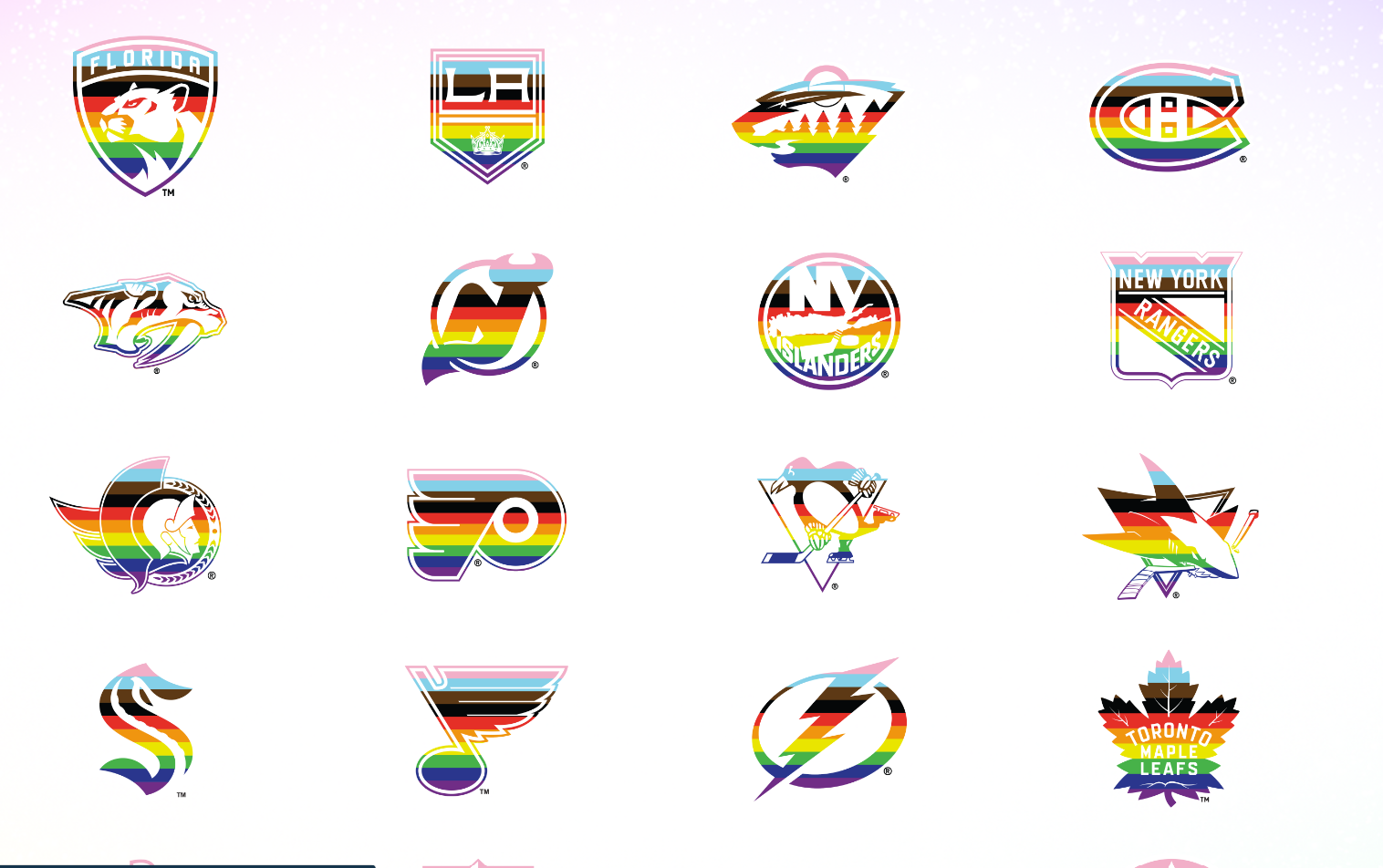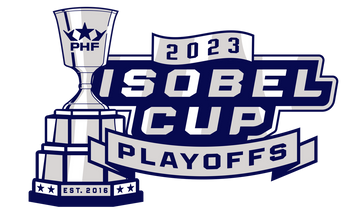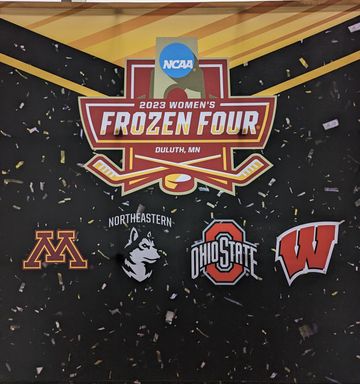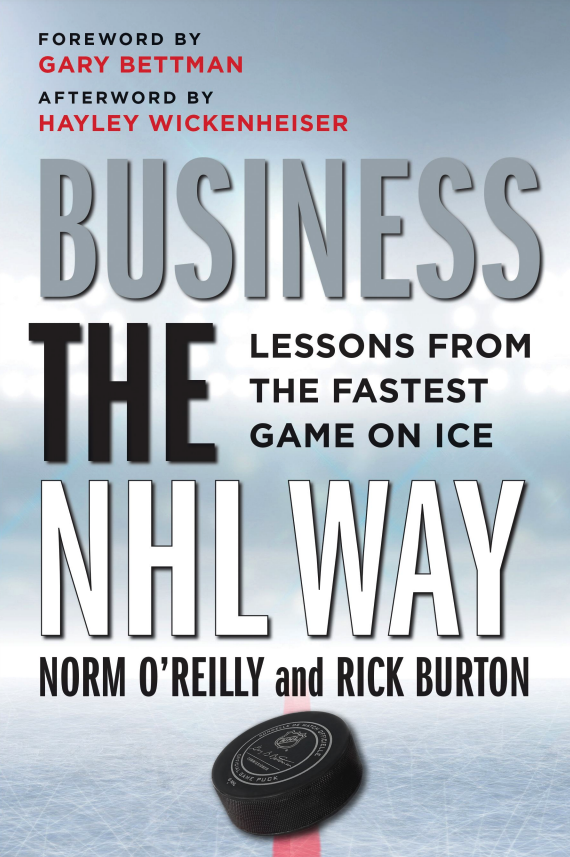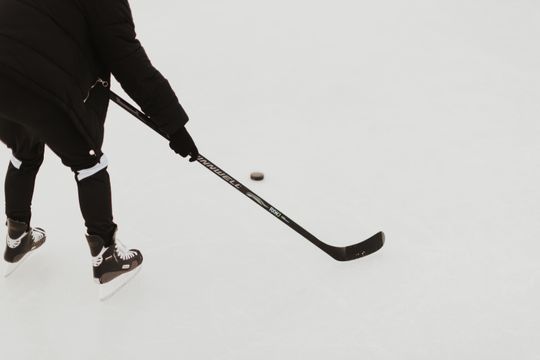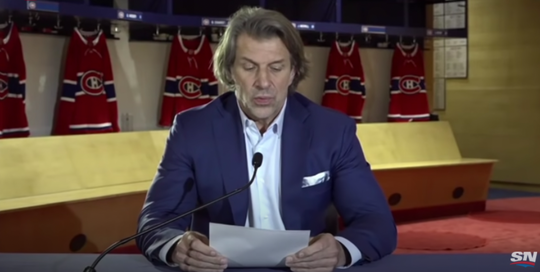If there was an institution that could make an empty, superficial gesture even more hollowed out than it already is, it would be the NHL. That various Pride Nights across the league have been subject to last minute changes, undermined by players and team officials who have previously supported them, is undoubtedly hurtful to queer communities – but it's not surprising behaviour from supposed allies.
Queer hockey fans have every right to feel frustrated and hurt by the blatant cowardice on display from the NHL, its teams, and its players. But I can't help but find the way Pride Nights have been handled this year somewhat refreshing. Or maybe a relief. This lays bare for all to see how the NHL's support and that of its management and players was and is artificial, self-serving, and without substance.
The things that keep me up at night, the thoughts I can't shake, the stuff that wears me down all have one source: the call for trans extermination. There is a growing chorus of people and legislators who want to exterminate trans people, but our current moment is the product of sustained effort over years and years. We had plenty of time to turn back, but for many, there were always "better" priorities. Trans extermination does not exist in isolation of course, and attacks on LGBTQ rights and queer people are rising in Europe and North America. These calls are coming from the hometowns of current NHLers and are happening where they currently play.
It is profoundly sad that – at a moment when this movement for queer and trans genocide has become clear enough for even some cis, straight people to see – we get a complete capitulation from those who would see themselves as allies.
It's instructive that it seems NHL teams have chosen to remain "united" rather than expose the most overt bigots among them. What's especially instructive is not that the NHL (a league overtly fueled by toxic masculinity, racism, sexism, and queerphobia) has players who are so virulently homophobic, biphobic, and transphobic that they would refuse to participate in a gesture as empty as wearing a rainbow-themed jersey in warmup. What's more damning is they don't have a single player who would challenge a bigoted teammate or peer publicly. When Philadelphia's Ivan Provorov declined to participate in warmups wearing a Pride jersey, Flyers players James van Riemsdyk and Scott Laughton met with members of the LGBTQ community after the game, and have created a support program for LGBTQ youth in the Philadelphia area. Invited queer community groups were still in attendance. But neither are the same as unequivocal institutional support, especially when the official line from the Flyers is that these things are a matter of personal choice.
When faced with the least amount of public pushback for showing just superficial support to queer communities, NHL players and management chose to stand by their bigoted teammates because maintaining the status quo and a traditional team-first mentality is what matters most to players.
When faced with the least amount of pushback from within, NHL players and management chose to stand by bigoted players, betraying the institutional and financial support queer artists and designers expected in good faith for lending their talents to Pride Night and jersey designs.
When faced with the least amount of pushback from their friends, the most vocal supporters of LGBTQ communities in the NHL capitulated quickly, spending post-game press conferences respecting the beliefs of their bigoted teammates not because they agree with them, but to preserve harmony in the room.
This absolute failure of allyship is instructive because it shows how hollow that allyship always was. Why should I care if you used pride tape on your stick in warmup once in the past when you wouldn't now in case it disrupts your team's culture? It was always an allyship of convenience. As queer people have been continuously persecuted in the sports world, queer inclusion efforts have always been advanced through a lens of cishet comfort. Put another way: what the NHL and its players offered queer communities is not acceptance or inclusion, but assimilation. To truly accept queer difference would undermine the team first ethos that drives conformity in the NHL and in hockey writ large. To truly accept queer difference would require players to care about the existential threats facing queer communities.
The NHL has a culture of cowardice and consumption. It absorbs and digests difference, abhors individuality. Philadelphia rallied around Ivan Provorov because every player knows the importance of the team and because this sport homogenizes thought. When the chips were down, his teammates had more in common with him than they did with queer and trans people. The Rangers, Islanders, and Wild followed suit, there's no reason to suspect the number won't grow next season.
Editor's note: At the author's request, instead of payment for this piece, a donation has been made to the Coalition for Black Trans Economic Liberation, a mutual aid fund in Philadelphia. To learn more about their work, check out their Linktree.
